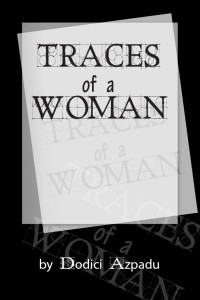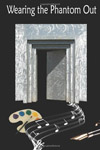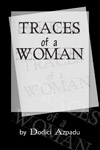by Dodici Azpadu

If writers understand the basic rules for comma usage, they will not worry about unnecessary commas. However, some people prefer to operate by what not to do. That’s why even the most rigorous grammar texts include sections on unnecessary commas.
Most writers know that a comma is necessary between compound independent clauses, and the comma is followed by a coordinating conjunction to be correct.
Bob returned the lawnmower, and he asked to borrow the clippers. [Correct]
Most writers also know that if the subject (he) of the second clause is removed, the comma is also deleted.
Bob returned the lawnmower and asked to borrow the clippers. [Correct]
The compound elements returned the lawnmower (verb and object) and asked to borrow the clippers (verb and object) are connected without a comma.
So the rule is: No comma between compound elements unless the elements are independent clauses.
A slightly more complicated version of this application occurs when the compound elements are subordinate clauses.
She said that she was serious, but that she wasn’t rigid. [Incorrect]
The compound elements are both dependent clauses introduced by that, so no comma is necessary.
She said that she was serious but that she wasn’t rigid. [Correct]
Another curious rule regarding unnecessary commas: No comma between an adjective and a noun or between an adverb and an adjective. Most writers would never use a comma between an adjective and a noun in a sentence like the following.
It was a dirty job. [Correct]
Some writers have a problem when the adjective noun occurs as part of a series.
It was a boring, dirty, job. [Incorrect]
It was a boring, dirty job. [Correct]
If writers remember how to use an adjective and noun (dirty job), they can apply the rule to adverb and adjective combinations.
He was a dangerously, rebellious boy. [Incorrect]
He was a dangerously rebellious boy. [Correct]
As in many situations, judgment calls are the most difficult. Another rule for unnecessary commas is: No commas to set off restrictive or mildly parenthetical elements. Simply stated, commas are unnecessary if the element restricts the meaning or is essential for the meaning.
The film, Hero, is an epic of Chinese history. [Incorrect]
The film Hero is an epic of Chinese history. [Correct]
Not just any film is an epic of Chinese history. The specific film is essential to the meaning.
Judgment calls also come with parenthetical expressions. The following sentence contains the rule and the example.
Some parenthetical expressions, by the nature of the qualifying information contained in them, require commas. [Correct]
However, when it comes to unnecessary commas the rule is: No commas to set off mildly parenthetical expressions.
She, essentially, taught reading and writing. [Incorrect]
She essentially taught reading and writing. [Correct]
Comma usage is one reason writers keep a grammar book on their work tables. When in doubt, check the table of contents or the index under unnecessary commas.

Dodici Azpadu, MFA, PhD is a novelist, short story writer, and poet. Her fiction publications include: Saturday Night in the Prime of Life and Goat Song (Aunt Lute/Spinsters Ink) and subsequently Onlywoman (London, England). Living Room (2010) and Traces of a Woman (2014), both by Neuma Books, are available as ebooks. She’s currently at work on a novel, tentatively titled Living Lies.
 Her poetry publications include Wearing the Phantom Out (2013) and Rumi’s Falcon from Neuma Books. Individual poems have appeared in Malpais Review, Adobe Walls, ContraACultura (online), Parnassus, Sinister Wisdom, Latuca, The Rag, and The Burning Bush. Her work has also been anthologized in Centos: A Collage of Poems and Hey Pasean!
Her poetry publications include Wearing the Phantom Out (2013) and Rumi’s Falcon from Neuma Books. Individual poems have appeared in Malpais Review, Adobe Walls, ContraACultura (online), Parnassus, Sinister Wisdom, Latuca, The Rag, and The Burning Bush. Her work has also been anthologized in Centos: A Collage of Poems and Hey Pasean!
Dodici teaches “The Joy of Poetry” and “Craft of Creating Writing” classes through University of New Mexico’s Osher Lifelong Learning.
This article was originally published in the October 2011 issue of SouthWest Sage and is reprinted here by permission of the author.
![]() As writers, we can be lulled by careless speech into thinking that what we hear is correct on paper.
As writers, we can be lulled by careless speech into thinking that what we hear is correct on paper. Her poetry publications include Wearing the Phantom Out (2013) and Rumi’s Falcon from Neuma Books. Individual poems have appeared in Malpais Review, Adobe Walls, ContraACultura (online), Parnassus, Sinister Wisdom, Latuca, The Rag, and The Burning Bush. Her work has also been anthologized in Centos: A Collage of Poems and Hey Pasean!
Her poetry publications include Wearing the Phantom Out (2013) and Rumi’s Falcon from Neuma Books. Individual poems have appeared in Malpais Review, Adobe Walls, ContraACultura (online), Parnassus, Sinister Wisdom, Latuca, The Rag, and The Burning Bush. Her work has also been anthologized in Centos: A Collage of Poems and Hey Pasean!


